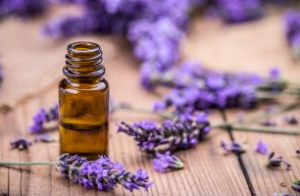Essential Oils: Consult Health Provider First
The lavender mist dancing from your diffuser may smell absolutely wonderful, but is it also making you feel calm?
From the woodsy aroma of cedar wood to the clean scent of lemon, essential oils have become a staple in many homes nationwide. Chances are you either know someone who uses essential oils or you have a drawer full of them in your kitchen.
People use essential oils for many reasons. Some simply like the way they make a room smell when they’re diffused. Others use them to make their own natural cleaning products. More and more, however, people are turning to essential oils to address a range of health problems – from arthritis and anxiety to insomnia and Attention Deficit Hyperactivity Disorder.
Under federal law, companies cannot market essential oils as drugs that can prevent or treat diseases. It’s why you’ll often see the following product disclaimer: “This statement has not been evaluated by the U.S. Food and Drug Administration (FDA). This product is not intended to diagnose, treat, cure, or prevent any disease.”
Despite the law, numerous websites, apps, and social media posts tout the potential health benefits of using essential oils.
If you’re thinking about using essential oils for a health or medical reason, make sure to consult your health care provider first. Essential oils may offer some benefits, but they should never replace traditional medical care.
Are essential oils safe?
The safety of essential oils can depend on the quality of the product, how you use it, and the state of your health.
A lot of people mistakenly assume that if something is “natural” or comes from a plant, it must be safe. In fact, some essential oils may contain materials that are toxic or cause skin irritation or an allergic reaction, according to the U.S. Food and Drug Administration.
Some oils should be diluted with a carrier oil. Others can make you photosensitive if you apply them to your skin and head outdoors.
According to the National Cancer Institute (NCI), using essential oils for aromatherapy shows very few side effects or risks. And, while some essential oils have been approved as ingredients in food – they’re classified by the FDA as “generally recognized as safe” — the NCI does not recommend swallowing large amounts of them.
If you have cancer, make sure to ask your oncologist about using essential oils in any capacity. Lavender and tea tree oils have been found to have some hormone-like effects. “It is recommended that patients with tumors that need estrogen to grow avoid using lavender and tea tree essential oils,” the NCI states.
Can essential oils address health problems?
Whether specific essential oils can treat medical issues is hard to scientifically determine. Many studies on various oils do not meet established government research standards.
For example, lavender has been used for centuries to improve mood and appetite. Today, people reach for lavender to help a variety of problems including anxiety, depression, pain, and insomnia. Yet, “there is little scientific evidence of lavender’s effectiveness for most health issues,” according to the National Center for Complementary and Integrative Health: “Studies on lavender for anxiety have shown mixed results.”
One study on aromatherapy found that it may improve the quality of life in patients with cancer.
“Some patients receiving aromatherapy have reported improvement in symptoms such as nausea or pain, and have lower blood pressure, pulse, and respiratory rate,” the NCI states.
Rely on reputable sources.
If you’re trying to find reliable information about essential oils on the internet, try searching the NCCIH Clearinghouse. A part of the National Institutes of Health, the NCCIH is the federal government’s lead agency for scientific research on health and medical products not considered part of conventional medicine.
You can also search for science-based information through PubMed®, a database of publication information and brief summaries of articles from scientific and medical journals.
If you’re not sure whether to believe some of the claims you read about, the NCCIH recommends asking the following questions:
- Who runs the website? Can they be trusted?
- Does the website make claims that seem too good to be true?
- When was the information posted or reviewed? Is the information outdated?
- Where does the information come from? Is it based on scientific research?
- Is the website selling something?
Remember; always consult your health care provider for guidance. Your doctor can help you find the latest medical information about the uses and risks of specific essential oils.
For more information or to find a healthcare provider near you, call 804-359-WELL or visit http://goodhelpdocs.com/.
Source: https://bonsecours.com/hampton-roads/about-us/blog/essential-oils-consult-health-provider-first

Comments are closed